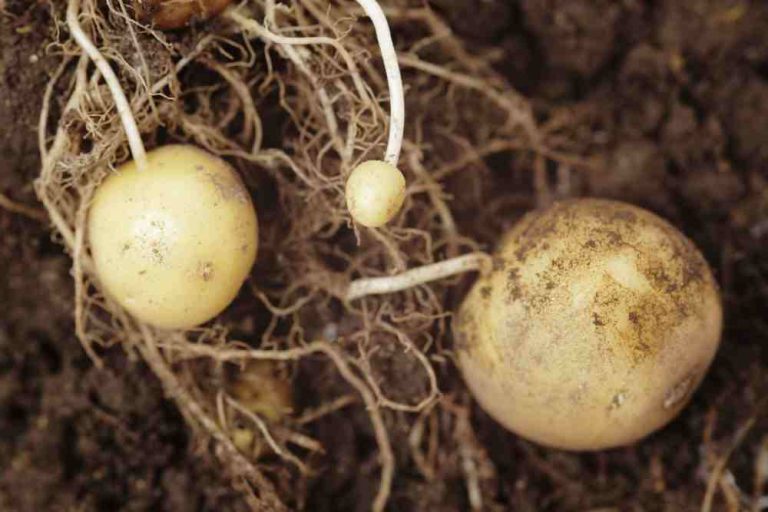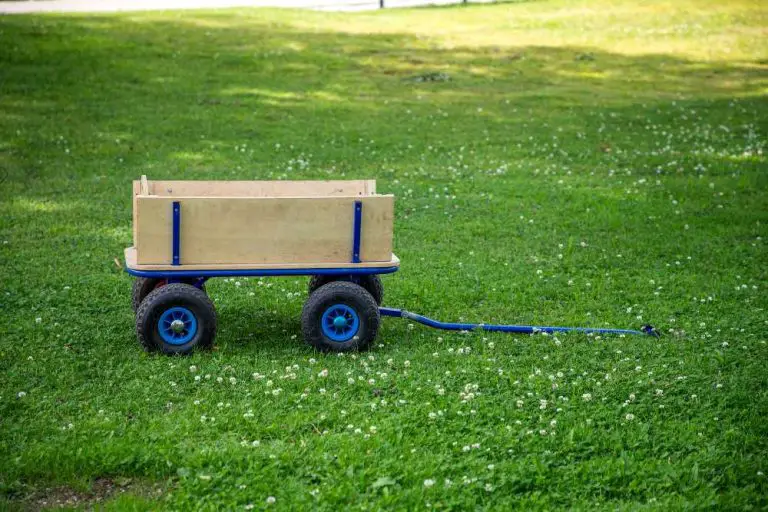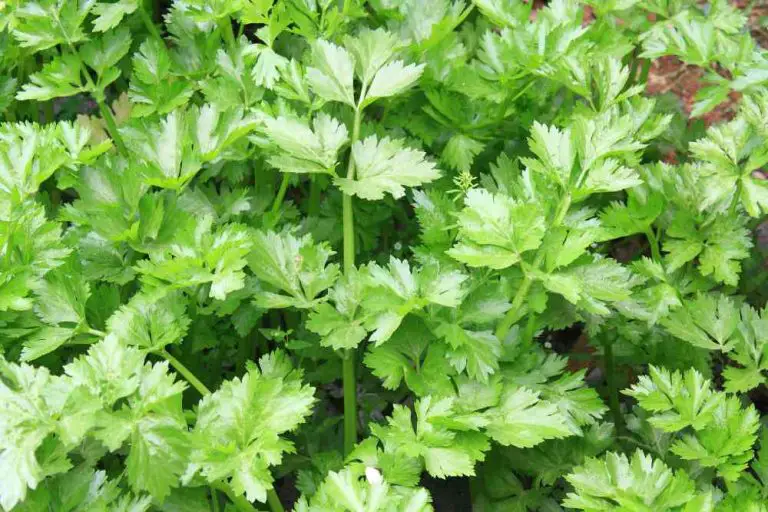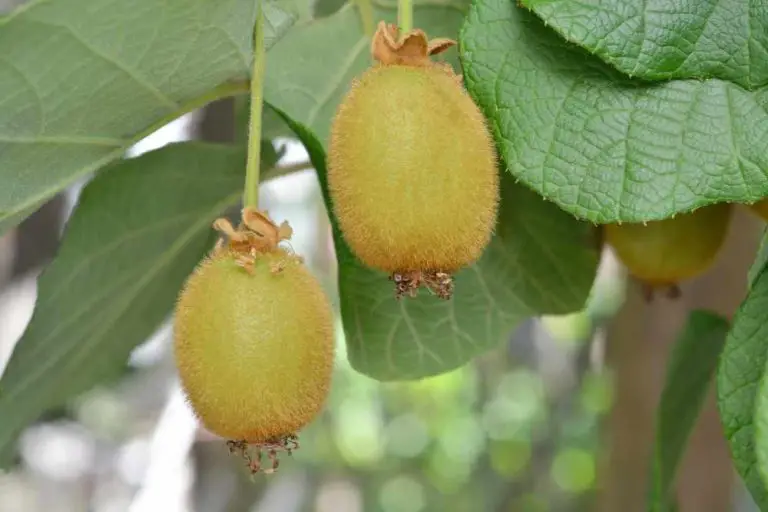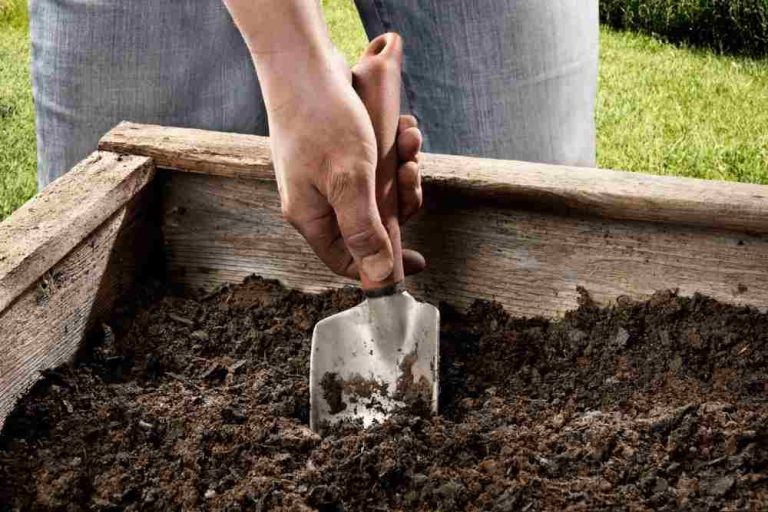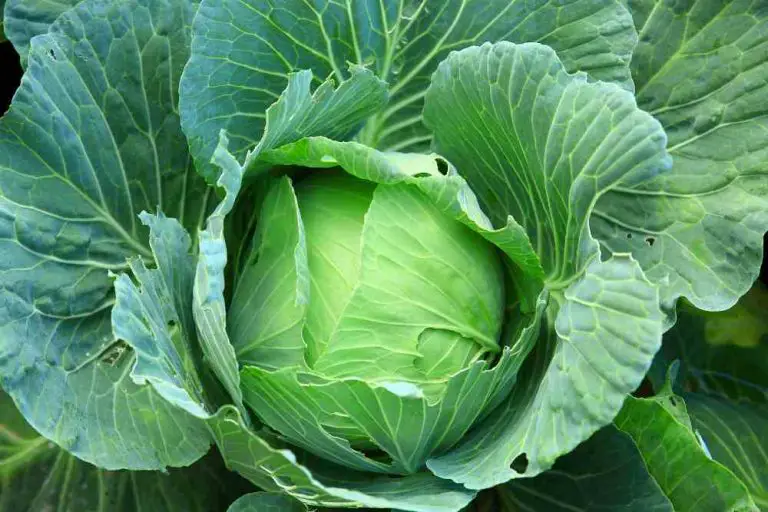Top 14 Best Vegetables to Grow in Michigan: A Comprehensive Guide
Michigan’s diverse climate and growth zones provide an exciting crop growth opportunity. Whether you’re an experienced gardener or just getting started, selecting suitable vegetables may make or break your gardening success.
When it comes to vegetable gardening in Michigan, our Great Lakes State offers a fertile playground for green-thumbed enthusiasts. From the southern regions to the Upper Peninsula, our diverse climate provides a rich tapestry of growing conditions. The right vegetables make a difference in how successful your gardening is, regardless of your experience level.
Growing your own vegetables is a satisfying experience because of the flavor, freshness, and sense of accomplishment that come with it. However, not all vegetables thrive in every climate. If you enjoy gardening and live in Michigan, you’re in luck! Michigan’s climate is ideal for various vegetables, and we’re here to guide you through some of the best ones to grow in this beautiful state. Discover the best vegetables to grow in Michigan and maximize your garden’s potential with these top picks for the region.
Michigan Growing Zones
Before we delve into the best vegetables to grow, let’s take a moment to understand Michigan’s growing zones. From the southern border to the Upper Peninsula, our state encompasses a range of USDA hardiness zones. This means that different areas have varying climates and average minimum temperatures.
In the southern regions, where the weather tends to be warmer, you’ll find yourself in zones 6a and 6b. As you move northward, the climate cools, and zones 5a and 5b come into play. The Upper Peninsula experiences even colder temperatures, falling into zones 4a and 4b. Identifying your exact growing zone is essential because it helps you to discover which plants are most suited to your environment.
Knowing your growth zone is like having a gardening compass; it directs you to the crops that will grow best in your region. Therefore, determine your zone before you start sowing seeds and plant properly for a successful harvest.
1. Potatoes
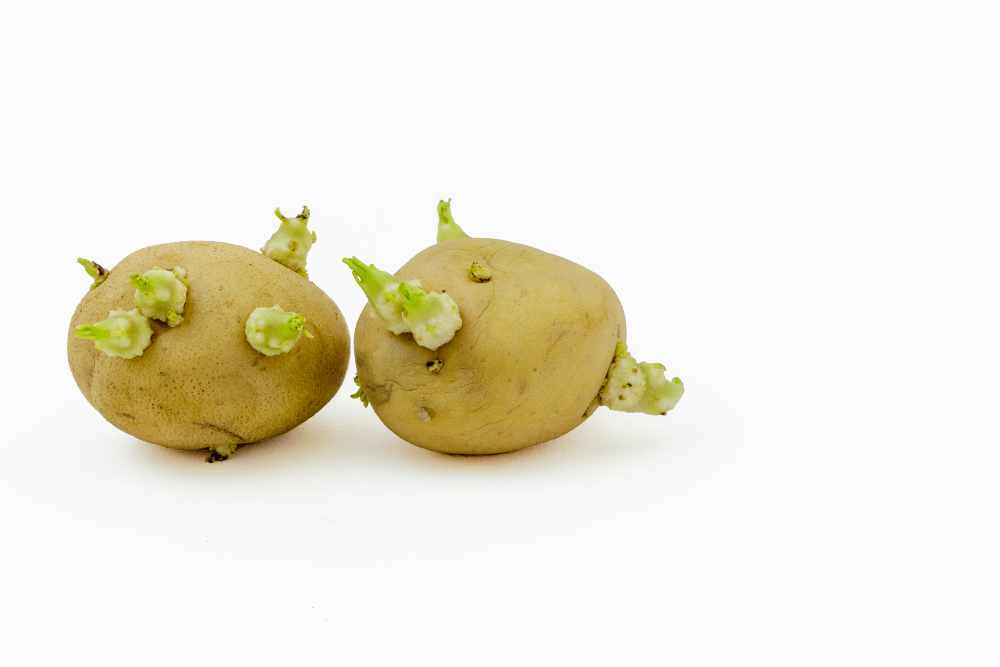
Potatoes are versatile, easy to raise, and fantastic to harvest. Michigan’s climate provides the perfect conditions for potato cultivation. This starchy tuber prefers cool temperatures, making the spring and fall months ideal for planting.
Tips for Growing Potatoes in Michigan:
- Prepare a well-draining garden bed with loose, fertile soil to grow potatoes.
- Cut seed potatoes into chunks, each with at least two eyes, and plant them about 4 inches deep.
- As the plants grow, mound soil around the stems to encourage tuber development.
- You’ll soon be rewarded with a big harvest of fresh, tasty potatoes that are excellent for roasting, mashing, or frying!
Growing Guide:
2. Kale
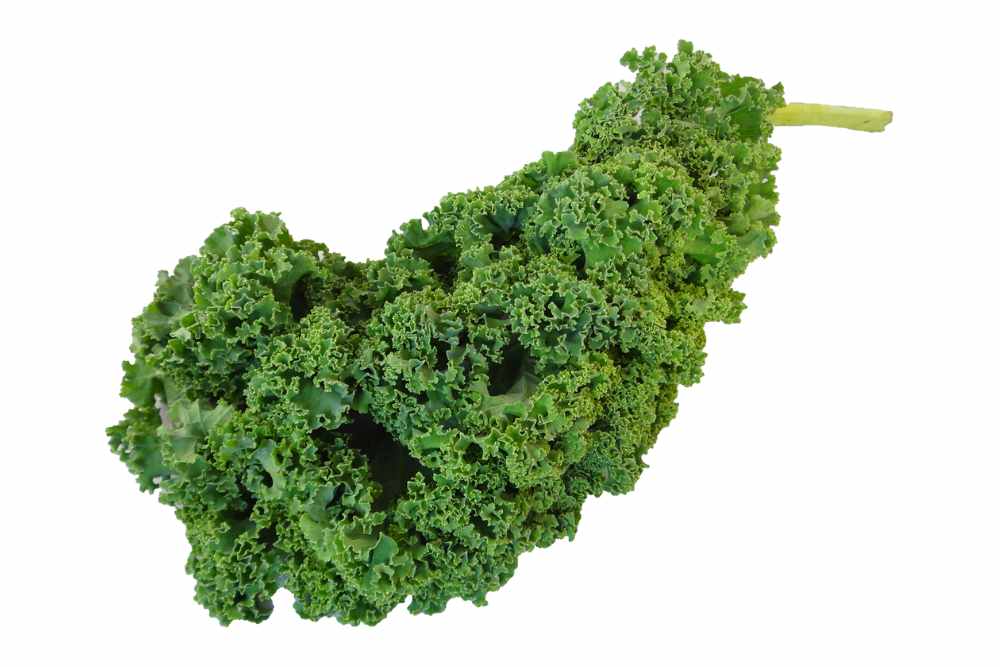
Kale is nutritious and adds color and texture to your garden landscape. Kale is a superfood that you can grow in your garden. It is high in essential nutrients and has a wide, rich taste. This leafy green thrives in cool conditions and is best planted in early spring or late summer.
Tips for Growing Kale in Michigan:
- Kale may be planted directly in the garden or started indoors before transplanting.
- It requires well-draining soil and regular watering.
- Once mature, you can begin harvesting the outer leaves, allowing the plant to continue producing fresh foliage.
Growing Guide:
3. Carrots
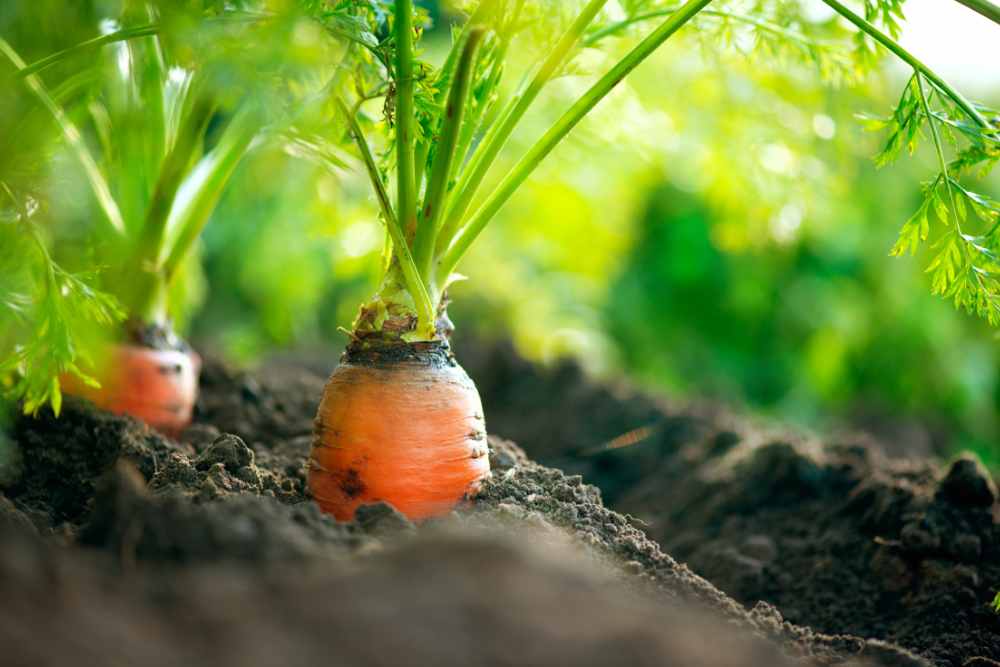
Who doesn’t love the sweet, crisp taste of homegrown carrots? These underground treasures are easy to grow and thrive in Michigan’s temperate climate. Carrots need loose, sandy soil, so remove any rocks or debris before planting.
Tips for Growing Carrots in Michigan:
- To plant carrots, create furrows in the soil and sow the seeds thinly.
- Cover them with a light layer of soil and keep the area consistently moist. Carrots need time for growth, but the wait is well worth it!
- When they are ready, dig them up, wash the dirt off, and enjoy the crisp, fresh sweetness of homegrown carrots.
Growing Guide:
4. Broccoli
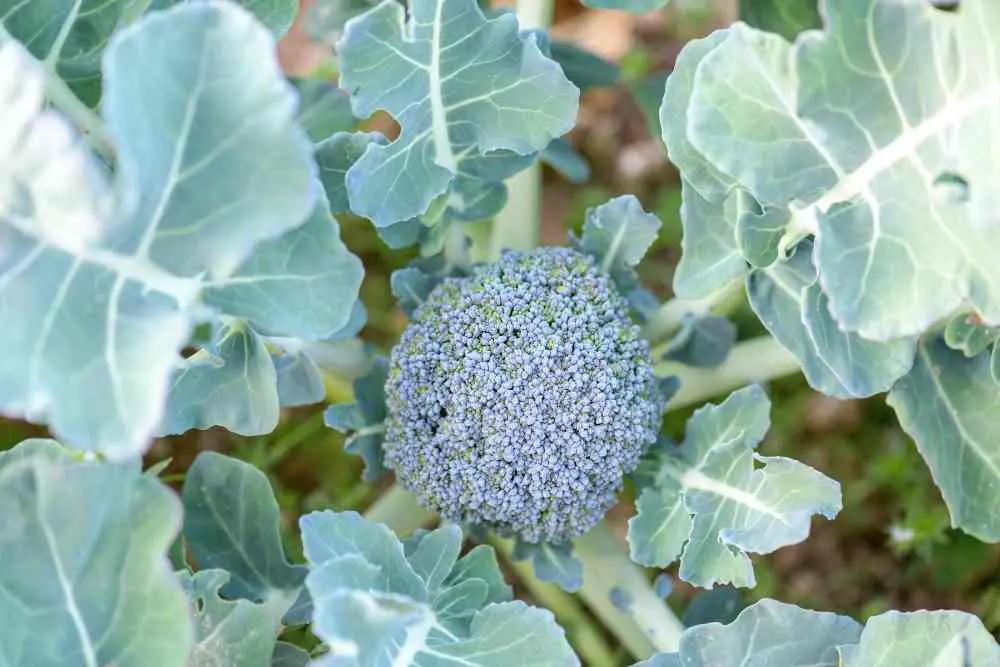
Broccoli is a garden favorite that tastes delicious and has several health advantages. This cool-season crop grows exceptionally well in Michigan’s climate, especially during spring and fall.
Tips for Growing Broccoli in Michigan:
- Pick a sunny location in your yard with well-draining soil.
- Start broccoli seeds indoors and transplant the seedlings outdoors after the last frost.
- Regular watering and occasional fertilization will promote vigorous growth.
- When the broccoli heads reach a good size and are still tightly closed, it’s time to harvest them. Remember to cut the heads at an angle to encourage the regrowth of smaller side shoots for continued harvests.
Growing Guide:
5. Lettuce
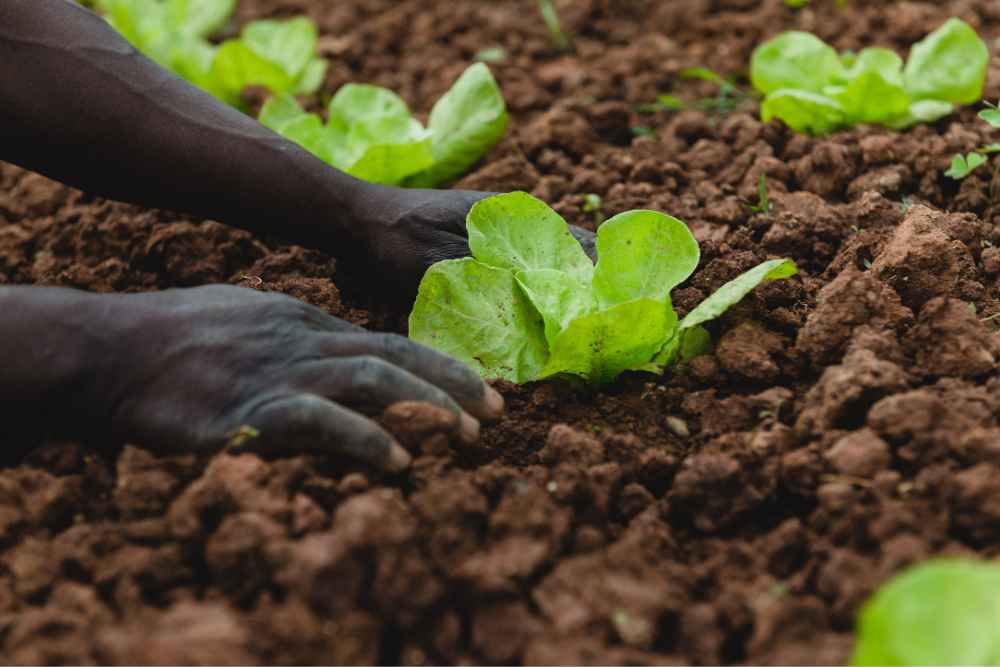
Lettuce is a must-have for every garden and a simple crop to cultivate in Michigan. Its cool-season nature means you can enjoy multiple plantings throughout the year.
Tips for Growing Lettuce in Michigan:
- For a steady supply of fresh lettuce, sow seeds in succession every few weeks.
- Lettuce prefers partial shade and fertile, well-draining soil.
- Keep the soil consistently moist to prevent the leaves from turning bitter.
- Harvest the outer leaves as needed; the plant will keep producing more for you to enjoy.
Growing Guide:
6. Peppers
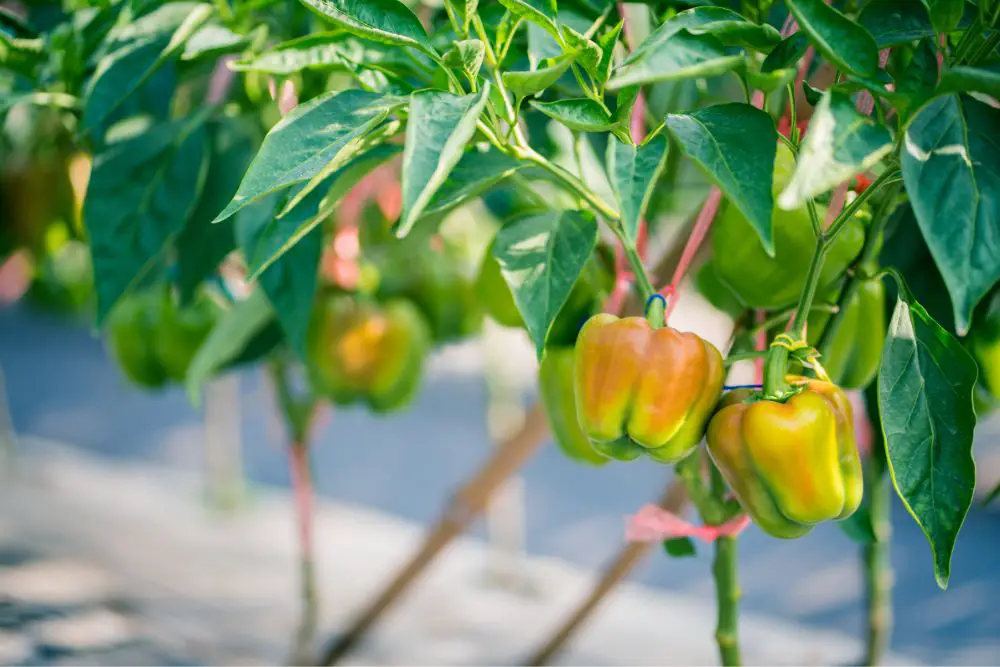
Peppers are a gardener’s delight with their vibrant colors and versatile flavors. Fortunately, Michigan’s warm summers provide an excellent environment for growing various pepper varieties.
Tips for Growing Peppers in Michigan:
- Peppers thrive in rich, loamy soil and require ample sunlight to flourish.
- 8 to 10 weeks before the final day of frost, start pepper seeds inside.
- After the soil has warmed up, transplant the seedlings outside.
Growing Guide:
7. Tomatoes
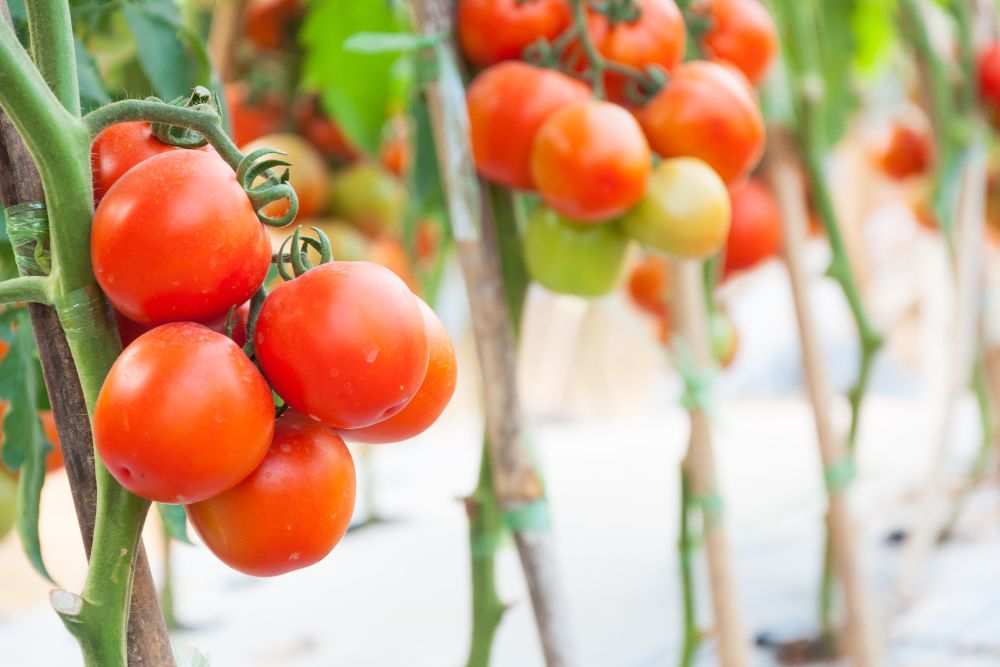
Let’s start with the undeniable favorite: tomatoes! Michigan’s warm summers provide an ideal environment for tomatoes to thrive. They are versatile in various sizes and flavors, from cherry tomatoes bursting with sweetness to beefsteak tomatoes perfect for sandwiches.
Tips for Growing Tomatoes in Michigan:
- Choose well-draining soil and a sunny spot in your garden to give tomatoes the warmth they love.
- Stake or cage your tomato plants to support their growth and prevent sprawling.
- Water consistently, aiming for the soil to remain moist but not waterlogged.
Growing Guide:
8. Corn
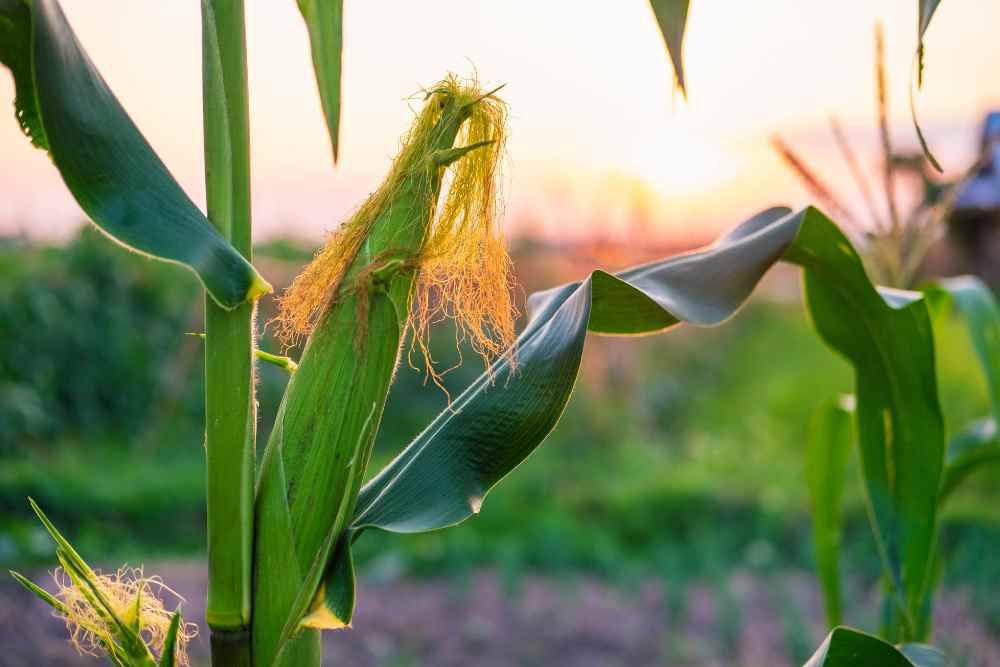
Corn is a staple crop in many regions of the United States, including Michigan. The state’s fertile soils and ample sunshine make it an excellent choice for growing this beloved vegetable. Whether you prefer sweet corn for fresh eating or dent corn for grinding into cornmeal, you can find the perfect corn variety to suit your needs.
Tips for Growing Corn in Michigan:
- Plant corn in blocks rather than single rows to ensure proper pollination.
- Fertilize the soil before planting and side-dress the plants with nitrogen as they grow taller.
- Keep corn well-watered, especially during hot spells.
Growing Guide:
9. Peas
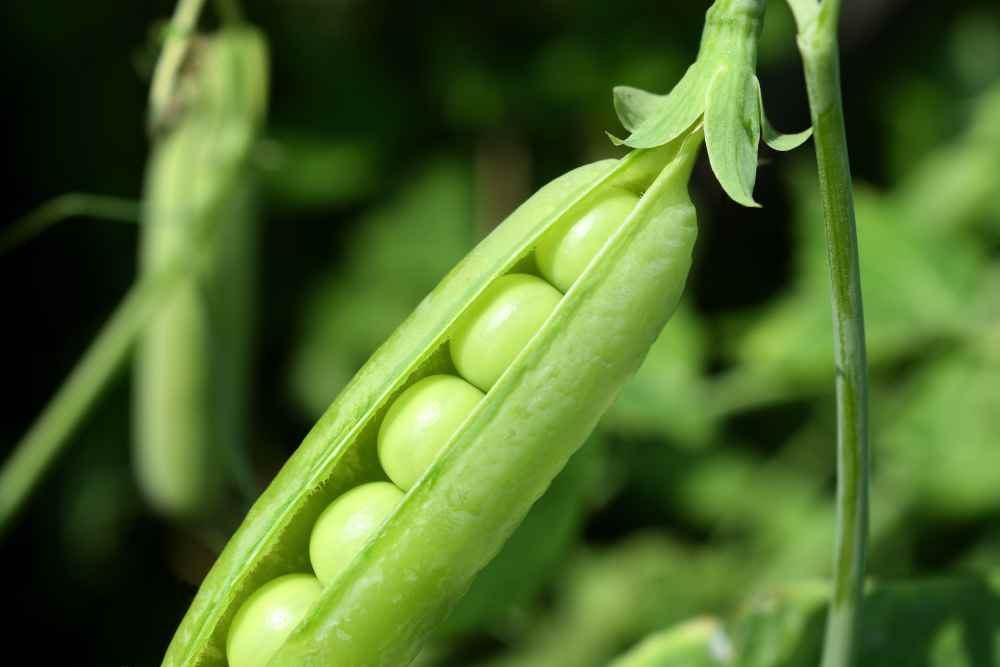
Peas are one of the early delights of the gardening season. They can be planted as soon as the soil can be worked, and their sweet, tender pods are a delight to harvest. Michigan’s cooler spring temperatures are perfect for pea cultivation.
Tips for Growing Peas in Michigan:
- Sow pea seeds directly into the ground in early spring, supporting climbing varieties.
- Mulch around pea plants to help conserve soil moisture and keep the roots cool.
- Harvest peas promptly when they are plump and sweet, as they can quickly become starchy.
Growing Guide:
10. Zucchini and Squash
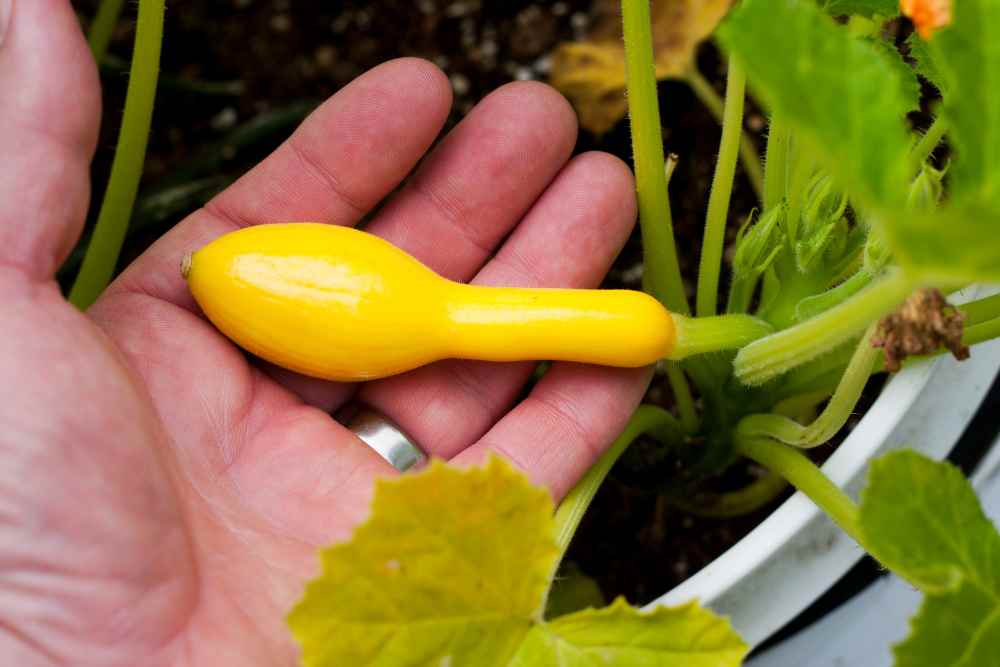
Zucchini and squash are prolific growers, making them a rewarding choice for Michigan gardeners. Their vibrant flowers and tasty fruit make them a delight to grow and eat.
Tips for Growing Zucchini and Squash in Michigan:
- Plant zucchini and squash in nutrient-rich, well-draining soil.
- Space the plants adequately to allow for proper air circulation and prevent diseases.
- Harvest zucchini and squash when they are small and tender for the best flavor.
Growing Guide:
11. Radishes
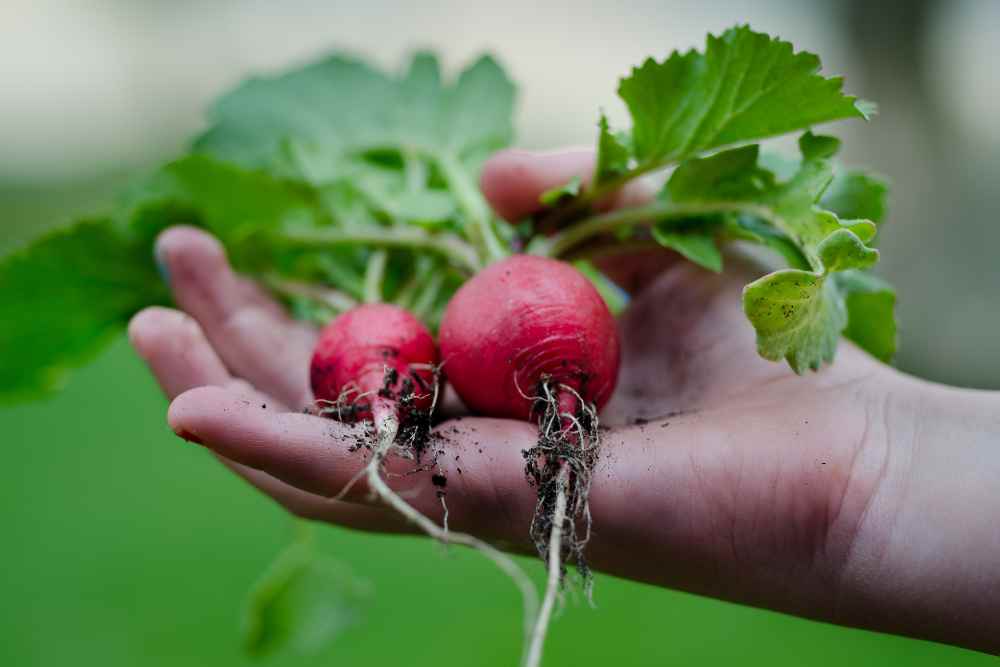
Radishes are fast-growing vegetables that may be harvested as soon as three weeks after planting. They are an excellent addition to any garden, giving salads a delicious spicy bite.
Tips for Growing Radishes in Michigan:
- Sow radish seeds directly into the ground in early spring or late summer for a fall crop.
- Thin radish seedlings avoid overcrowding and promote healthy root development.
- Keep the soil consistently moist to prevent radishes from becoming woody and bitter.
Growing Guide:
6. Cabbage
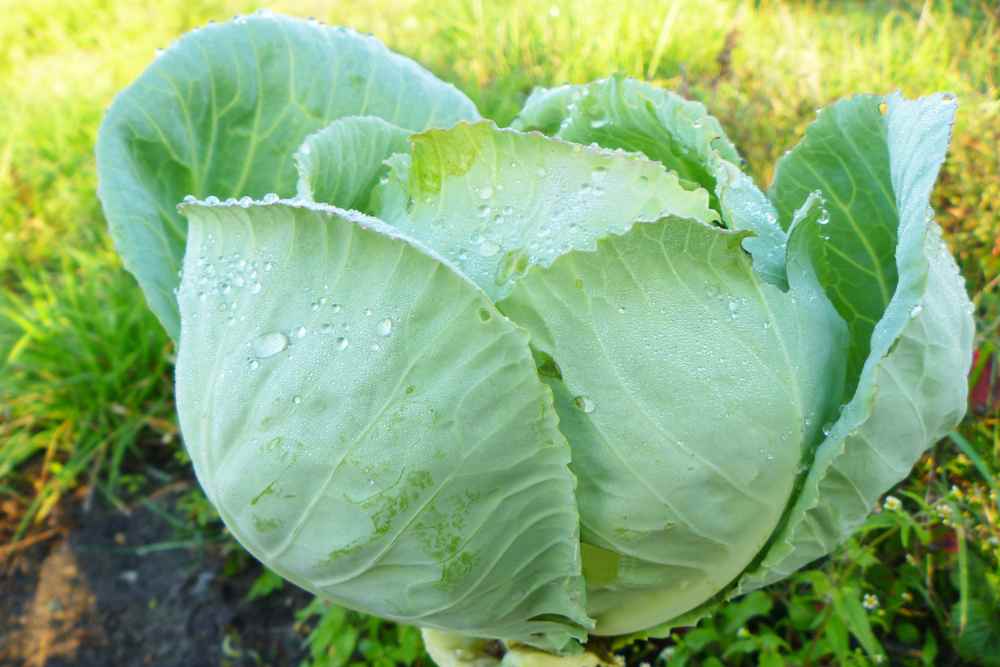
Cabbage is a cold-hardy vegetable that can withstand Michigan’s chilly fall temperatures. It comes in various varieties, including green, red, and savoy cabbage, offering a range of flavors and culinary uses.
Tips for Growing Cabbage in Michigan:
- Start cabbage seeds indoors in early spring and transplant them outdoors when they are robust enough.
- Use row covers or netting to protect cabbage from pests like cabbage worms.
- Harvest cabbage heads when firm and solid before they crack or split.
Growing Guide:
7. Pumpkin
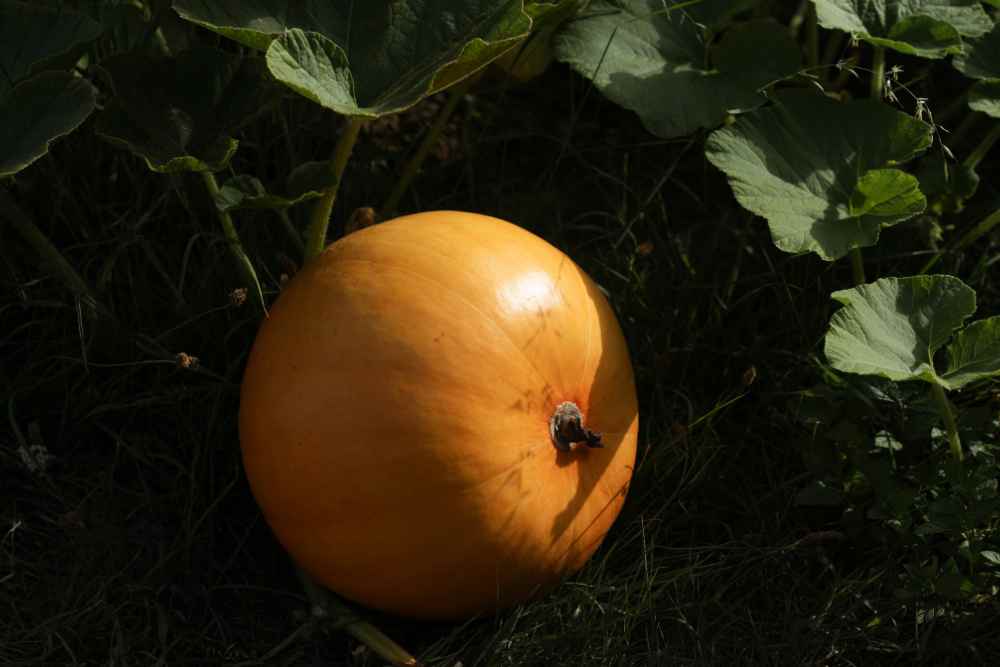
Nothing says “harvest time” like pumpkins as the fall season approaches. Whether you plan to carve them for Halloween or use them in delicious pumpkin pies, Michigan’s warm summers provide the ideal conditions for pumpkin growth.
Tips for Growing Pumpkins in Michigan:
- Choose a sunny location with plenty of space for pumpkin vines to spread.
- Before planting, add compost or well-rotted manure to the soil.
- Be patient, as pumpkins can take a few months to mature fully.
8 Tips for Successful Vegetable Gardening in Michigan
1. Soil Preparation:
- Before planting, ensure your soil is well-draining and enriched with organic matter. Consider doing a soil test to determine any necessary amendments.
2. Right Planting Time:
- Pay attention to the specific planting times for each vegetable, considering Michigan’s climate and average last frost date.
3. Sunlight:
- Most veggies thrive in full sunlight, so find a spot in your garden with at least 6-8 hours of direct sunlight daily.
4. Watering
- Adequate and consistent watering is essential for healthy plant growth. Use a drip irrigation system or water at the base of plants to avoid leaf diseases.
5. Mulching:
- Apply mulch around your plants to conserve moisture, suppress weeds, and maintain a steady soil temperature.
6. Pest Control:
- Monitor your garden regularly for pests and take necessary measures to control them, such as using natural repellents or physical barriers.
7. Companion Planting:
- Utilize companion planting strategies to enhance growth and deter pests. For example, planting marigolds alongside tomatoes can repel certain harmful insects.
8. Crop Rotation:
- Rotate your crops each season to prevent soil-borne diseases and nutrient depletion.
- 20+ Chic Boho Bedroom Ideas for a Cozy and Stylish Retreat - June 20, 2024
- 12+ Modern Boho Living Room Ideas to Create a Unique Oasis - June 10, 2024
- 10 Stunning Canopy Bed Ideas for a Dreamy Escape - May 16, 2024

